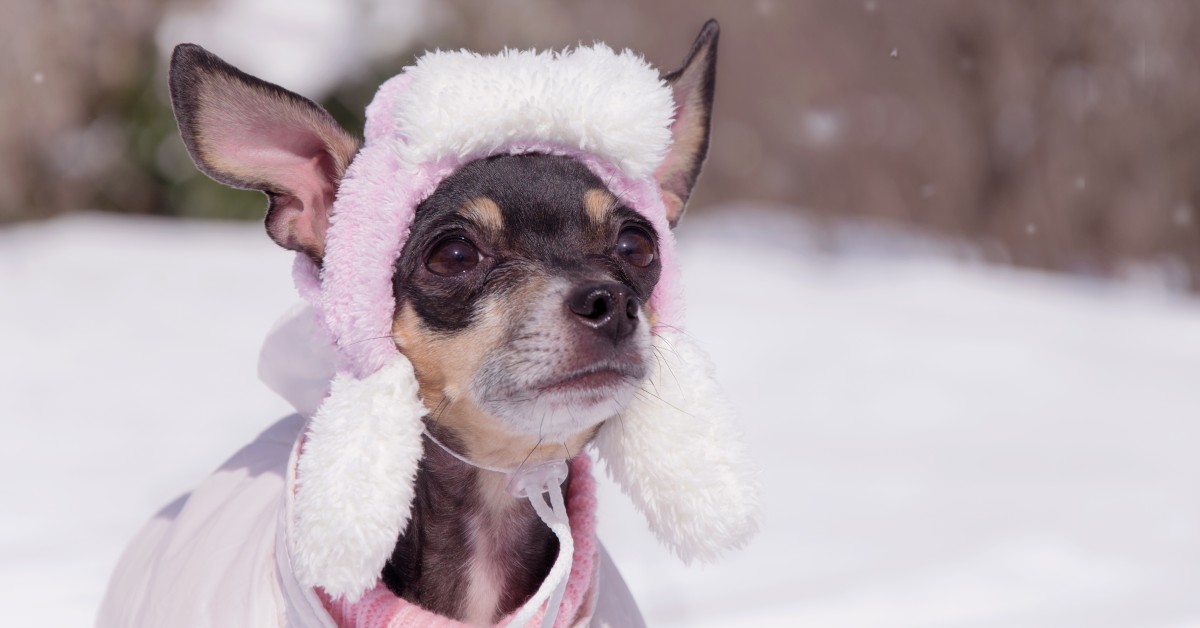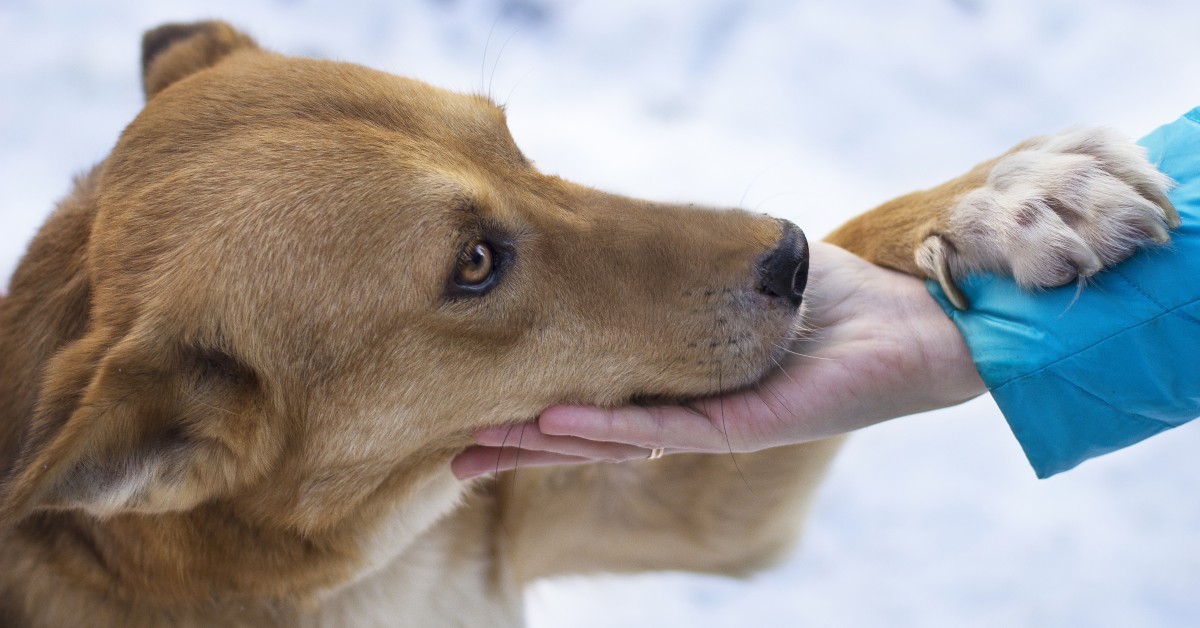Essential Winter Care Tips for Senior Dogs & Cats
Keep your furry companion safe, healthy, and comfortable during the cold winter season with these senior pet care tips.

While your pet may have easily frolicked through the snow as a puppy, winter weather can be hard on aging pets. Your senior cat or dog may have more difficulty getting around, especially as cold weather can exacerbate pain and stiffness in the joints. Caring for an older pet in the winter requires a proactive approach to ensure that the animal has the nutrition, exercise, and mental stimulation needed to maintain their well-being. Consider the following winter pet care essentials this winter.
Reevaluate Your Senior Pet’s Diet
Diet plays a key role in how your pet looks and feels. While you don’t want to make any major changes to your pet’s diet without guidance from your veterinarian, it can be beneficial to supplement their diet with nutritional supplements designed for joint health.
Ask your vet about incorporating supplements like glucosamine and chondroitin sulfate to help joints stay lubricated, making it easier for them to get around in the cold. Also ask your vet about upgrading to a senior-approved pet food with a high-quality protein source, a balanced amount of calories, and added omega-3 fatty acids.
Encourage Mild Exercise
Staying active is important for dogs and cats of all ages. However, your senior pet may not get around as well as he did in his younger days. Keep exercise sessions short and tame, allowing your pet to move at his own pace. On days when your pet is not feeling up to exercising, try mental stimulation instead. Offer your pet a puzzle toy or play a game of hide and seek.
Monitor Your Senior Pet While Outdoors
Cold weather can pose several serious health risks for senior pets. Whether you’re bringing your pet to the yard for a potty break or going on a leisurely walk in the neighborhood, it’s important to recognize potential signs of hypothermia. This may include shivering, lethargy, muscle stiffness, clumsy movements, pale gums, confusion, or skin that is cold to the touch.
If your pet begins to show signs of hypothermia, immediately bring them into a warm environment, wrap them in a dry blanket or towel, and closely monitor their temperature. If their condition is severe or doesn’t rapidly improve, contact your vet.
Provide Warmth and Comfort
Many aging pets find it difficult to remain warm and cozy during the winter months. You can make it easier on them by providing items designed to keep your pet comfortable. First, consider investing in a pet-safe warming bed or orthopedic bed, both of which are excellent for arthritic cats and dogs. Next, get your pet the proper gear for going out in the cold, such as a waterproof coat or vest, and a pair of booties or paw wax.
Schedule Regular Pet Grooming
Whether you prefer to go to a professional or groom your senior pet at home, regular grooming sessions are essential to keep your pet’s skin and coat healthy. Depending on your pet’s coat type, limit baths to about every 12 weeks as overbathing can wash away the natural oils on the skin.
Be sure to regularly moisturize your pet’s skin. Cold winter temperatures can dry out the skin, causing itchiness and irritation. Avoid fur mats by brushing your pet regularly, typically at least once per week to eliminate any tangles.
Create a Safe Outdoor Environment for Your Senior Pet
If your aging pet spends any amount of time outside, you’ll want to make sure it’s a safe environment. Add traction to walkways, such as sidewalks and driveways, to reduce the risk of slips and falls. Use pet-friendly de-icers and snow melts that won’t harm your pet’s paws. Consider placing ramps over steps that may become icy, creating a safety hazard. If your location is prone to heavy snowfall, clear out a space in the yard for your pet to potty without having to stand in deep snow.
Get Winter Pet Checkups
While it’s important to bring your dog or cat to the vet year-round to ensure he’s healthy and content, the winter season is especially important due to the higher risk of illnesses and injuries. Schedule regular vet visits and have your veterinarian check for changes in health. To accommodate your pet’s age, your vet may recommend adjustments to medications and/or supplements. Your vet may also suggest ways to help keep your senior pet comfortable at home.
Improving Your Senior Pet’s Life During the Winter
It can sometimes be difficult for aging dogs and cats to adapt to seasonal changes, especially when those changes involve snow, ice, and chilly temperatures. In response to winter weather, many senior pets slow down, become more lethargic, and may even develop a condition known as Seasonal Affective Disorder (SAD), which can lead to mood and behavioral changes.
While you can’t control the weather, there are things you can do to make your older pet comfortable and content throughout the winter season. From going on brief walks outdoors to engaging in puzzle toys inside, your senior dog can still enjoy some fun in a safe and low-risk way. Some simple modifications to your home and lifestyle can make all the difference in your senior pet’s life.
Ready to start saving money on pet wellness care?
Then take a look at Mint Wellness, the pet wellness plan that provides fast reimbursement on routine pet care. Save on vaccinations, wellness exams, preventatives, dental, and more!
Learn More


